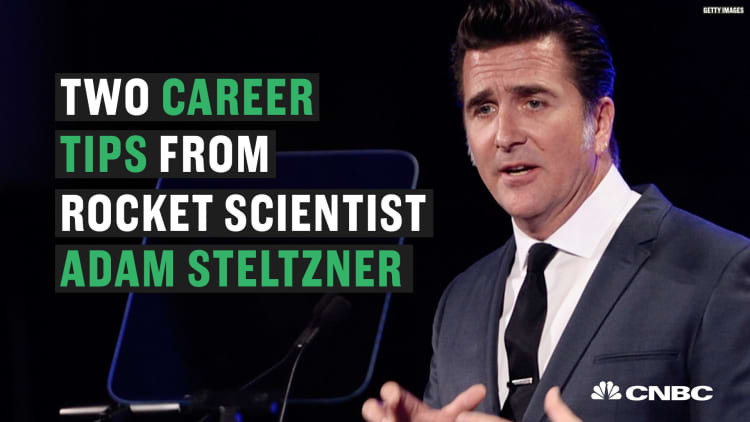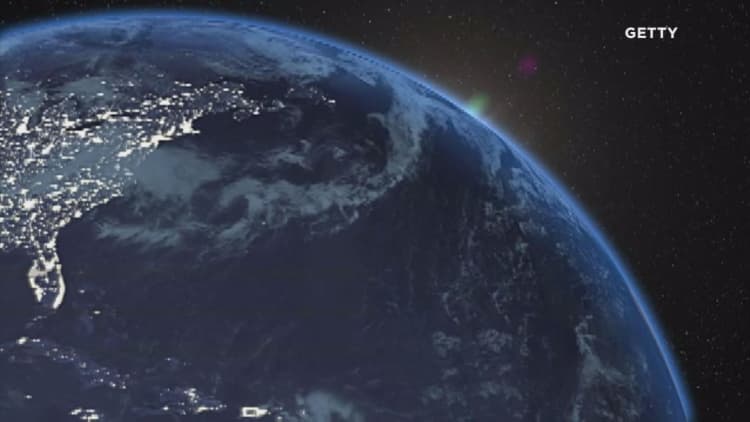NASA is looking for someone to be Earth's "planetary protection officer."
The job title, with security clearance of "secret," is something straight out of the 1997 sci-fi comedy classic "Men in Black." In fact, the current planetary protection officer, Catharine Conley, says that on her first day, she was issued a pair of "dark Ray-Ban sunglasses."
While it's unclear whether the new officer will be replacing Conley or joining her team, the job description is out of this world.
The officer's main responsibility is to ensure humans don't contaminate space, and in turn, that extraterrestrial contaminants and organisms, if they exist, don't contaminate Earth.
The officer would be part of NASA's Office of Planetary Protection, which, among other things, works "to avoid contamination that would obscure our ability to find life elsewhere — if it exists; and to ensure that we take prudent precautions to protect Earth's biosphere in case it does."
And the job pays well. Compensation is between $124,406 and $187,000, according to the job description.
But space enthusiasts, don't submit your resume just yet. As Newsweek reports, the qualifications are pretty specific. To be considered, you have to hold a bachelor's degree, and preferably an advanced degree, in one of the following areas: Engineering, physical science or mathematics.
Candidates must also have completed "24 semester hours in physical science and/or related engineering science such as mechanics, dynamics, properties of materials or electronics."
The job was created to make the U.S. compliant with the International Outer Space Treaty of 1967, which provides the legal framework for governing space and affirms that "the exploration and use of outer space shall be carried out for the benefit and in the interests of all countries."
Conley, who previously served as a principal investigator at NASA's Ames Research Center, ensures that returning spacecraft are decontaminated and that humans don't disrupt the workings of outer space. NASA is something of a family business for her: Her father was a consultant to the agency during the Apollo program.
In the course of her work, she's mulled questions such as, "Will the humans be alive by the time they get to Mars? If they die on Mars, are they then contaminating the surface?" she tells Scientific American. She's also wondered how commercial space exploration efforts, like those pursued by Elon Musk's SpaceX, will comply with the International Outer Space Treaty.
If you know you're not qualified for this job but think you could have a future at NASA, check out the 12 Americans working to become the U.S.'s next class of astronauts.
Like this story? Like CNBC Make It on Facebook.
Space rocket photo courtesy of NASA, shared under Flickr Creative Commons license.




